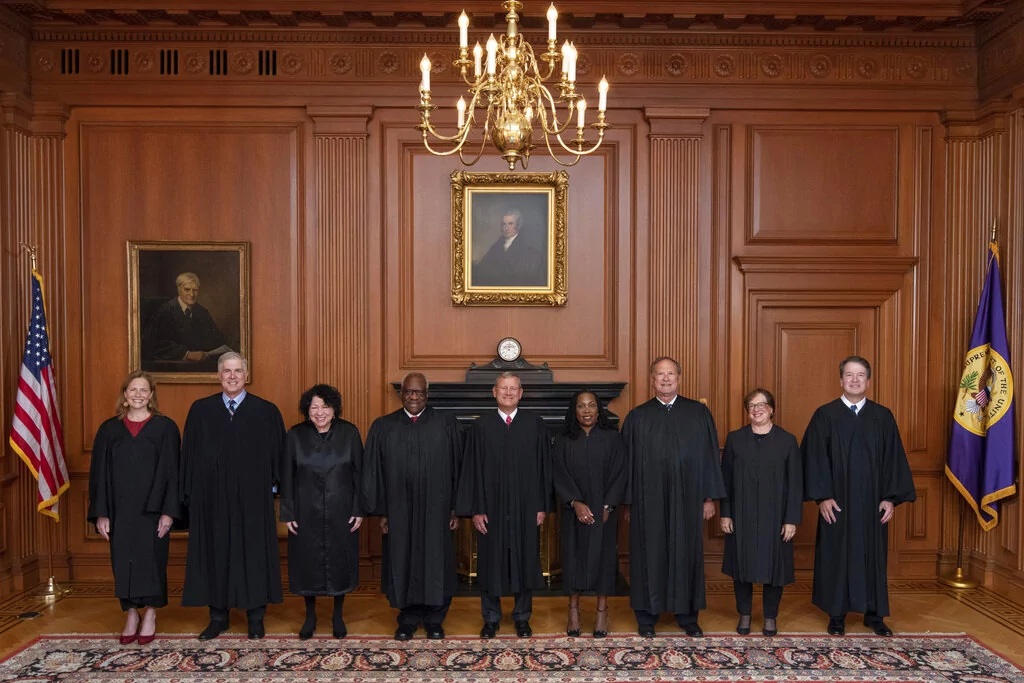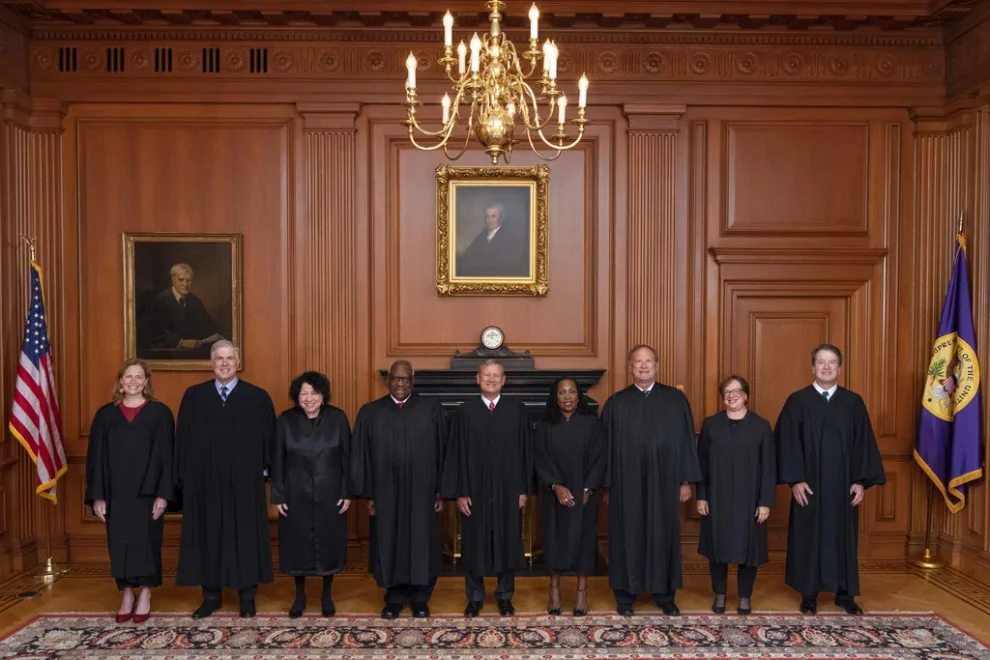President Joe Biden‘s Supreme Court reform proposals have elicited little response from the nine justices, though their past comments provide insight as to where they stand on some portions of his high court wish list.
Only one Supreme Court justice, Neil Gorsuch, has spoken out since Biden announced his sweeping ethics reform proposals. Gorsuch’s comments were kept to a minimum in light of the “political issue” during a presidential election year, consisting of a remark that he did not think it “would be helpful” to opine on the president’s plans at this time.

“And so I just say, be careful,” Gorsuch, an appointee of former President Donald Trump, told Fox News during an interview last weekend.
Biden’s Supreme Court reform agenda, laid out July 29, features proposals for a constitutional amendment to state a former president does not have immunity for crimes carried out in office, term limits for Supreme Court justices, and a “binding” code of conduct for the high court.
Although Gorsuch’s words did not prompt complaints from any lawmakers, Senate Judiciary Chairman Dick Durbin (D-IL) pushed back last August when Justice Samuel Alito said during a Wall Street Journal interview that “No provision in the Constitution gives [Congress] the authority to regulate the Supreme Court—period.”
Durbin accused Alito, an appointee of former President George Bush, of “opining” about the constitutionality of legislation that was being considered by the Senate, known as the Supreme Court Ethics, Recusal, and Transparency Act, and called for the justice to “recuse himself in any future cases concerning legislation that regulates the court.”
The Democratic senator suggested Alito violated Canon 3(A)(6) of the Code of Conduct for U.S. Judges, which states, “[a] judge should not make public comment on the merits of a matter pending or impending in any court.”
Case Western Reserve Law School professor Jonathan Adler told the Washington Examiner this week that while it may be “wise” for justices to avoid expressing definitive opinions about what is or is not lawful, “I think it is valuable to have justices be part of the conversation about whether a given proposal is actually wise or workable.”
Adler also said Durbin’s statement “was political” and “had no legal merit,” noting that “no legislation has been passed, let alone a proceeding applying such a rule.”
But Alito is not the only high court justice to have opined about a hypothetical code of conduct that would be enforceable by parties outside of the Supreme Court. Before Gorsuch’s interview, Justice Elena Kagan was the latest to make such comments at a July 26 speech at a judicial conference in Sacramento.
Kagan, an appointee of former President Barack Obama, acknowledged there are complexities in determining who should enforce an ethics code for the justices.
“But I feel as though we, however hard it is, that we could and should try to figure out some mechanism for doing this,” Kagan said days after news outlets reported that Biden was planning to announce reform proposals at the high court.
No lawmakers have accused Kagan of opining about pending legislation.
South Texas Law School professor Josh Blackman noted that Kagan’s remarks came before Biden’s July 29 reforms announcement and noted that Biden technically has not proposed any legislation.
Blackman said he believes Kagan was speaking about the “issues in the ether in the same way that Alito was.”
“There is no pending case, so I don’t see any need for recusal,” Blackman said.
Although legal experts say no current justices have crossed an ethical line by referencing the current controversy of judicial ethics, Durbin’s calls for Alito’s recusal last year underscore the difficult predicament the justices face as Biden uses his final days in office to call for sweeping reforms.
Calls for ethics reforms by Biden and top Democrats surround the reality that the current 6-3 majority on the high court of justices was appointed by Republican presidents. Last November, the justices finally drafted and published their own code of conduct, but Democrats such as Durbin complained that there was no enforcement mechanism to hold them accountable in the event of ethical lapses.
Many Democrats have accused the Supreme Court and its conservative justices, particularly Clarence Thomas and Samuel Alito, of undermining democracy by being partisan. In Thomas’s case, he went on several trips financed by his longtime friend and Republican donor Harlan Crow. For Alito, he went on a fishing trip in 2008 to Alaska on board the private plane of billionaire Paul Singer.
Republicans have countered by arguing that Democrats only seek change because they are in the minority and that there is no evidence of justices’ opinions being swayed by outside parties. Thomas and Alito have denied having any bias.
Before the justices announced their code of conduct last year, Trump-appointed Justice Amy Coney Barrett announced she supports an ethics code, adding that “All nine justices are very committed to the highest standards of ethical conduct.”
One month later, the justices said though there has been no formal code, they have long abided by the same standards for lower court judges.
The new code, signed by all nine justices, states on its top page: “To dispel this misunderstanding, we are issuing this Code, which largely represents a codification of principles that we have long regarded as governing our conduct.”
Given the extreme unlikelihood that Congress will be able to pass legislation for a binding code of ethics, due to the division between Republicans and Democrats, it may come down to the high court to decide whether and how an ethical code should be enforced.
Although Kagan stressed in her recent speech that she was speaking only for herself, she noted that she proposed to Chief Justice John Roberts that he appoint a panel of judges to enforce the high court’s recent code of conduct.
CLICK HERE TO READ MORE FROM THE WASHINGTON EXAMINER
Kagan said she trusts Roberts and that if he created “some sort of committee of highly respected judges with a great deal of experience and a reputation for fairness,” it would seem like a good solution.
The Washington Examiner contacted Durbin’s office and the Supreme Court.
























